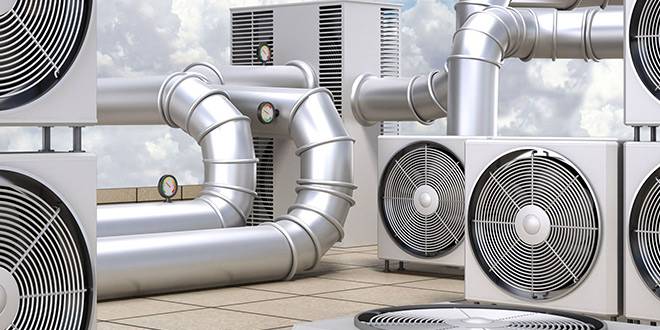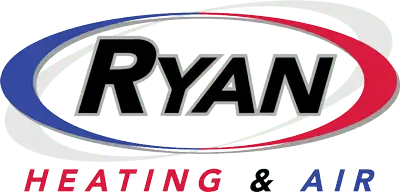Are you facing AC troubles in Chattanooga, TN, or nearby? A circuit breaker issue could be the culprit. In this blog, we offer safe, easy-to-follow advice for basic checks, helping you decide when an air conditioning repair service is needed to restore your system’s efficiency and reliability.
Troubleshooting AC Breaker Issues: Safe Step-by-Step Guide
Step 1: Prioritize Safety
The first and most important step in addressing any electrical issue is ensuring your personal safety. Always turn off your HVAC system using the thermostat. This precaution minimizes the risk of electrical shock or accidents. It’s crucial to remember that if you’re not confident in handling any of these steps, seeking professional help is the best course of action. HVAC specialists are trained to handle such situations safely and efficiently.
Step 2: Find Your Circuit Breaker Box
Locating your circuit breaker box is your next step. Typically, this box can be found in areas like the basement, garage, or utility closet. Within this box, you’ll need to find the specific breaker that controls your AC unit. Breakers are often clearly labeled, which aids in quick identification. If labels are not present or clear, you might need to refer to your home’s electrical plan or consult a professional.
Step 3: Identifying a Tripped Circuit Breaker
A tripped breaker is generally easy to spot. It will not be in the fully ‘on’ position, often sitting in the ‘off’ position or somewhere between ‘on’ and ‘off.’ When you discover that your AC’s breaker has tripped, it’s an indication that there’s an issue within your electrical system that needs attention. This could range from a simple overload to a more significant wiring problem.
Step 4: Resetting the Breaker
Resetting the breaker is a straightforward process but must be done with care. Firmly switch the breaker to the ‘off’ position and then flip it back to ‘on.’ This action can often resolve minor electrical issues. However, if the breaker trips again soon after being reset, this is a clear signal that there’s a more serious problem that likely requires professional diagnosis and repair.
Step 5: Inspecting the AC Unit
After successfully resetting the breaker and it remains on, inspect your AC unit. Listen for any unusual sounds or check for signs of potential overheating. Also, examine the air filter to ensure it’s clean and not obstructing airflow, as a dirty air filter can sometimes cause system issues. If the unit and air filter appear normal, turn the thermostat back on and observe if the AC starts properly without causing the breaker to trip.

Step 6: Ongoing System Monitoring
Even after these steps, it’s important to keep a close eye on your AC system. If the breaker trips again, it’s a strong indication of a persistent problem. This could be due to reasons like a short circuit, an overloaded circuit, or an internal issue with the AC unit. Continuous AC tripping is a sign that something more serious is amiss, and it’s imperative to call in HVAC professionals at this point.
By following these steps, you can safely assess and potentially resolve basic AC circuit breaker issues. However, persistent or repeated problems should be addressed by a trained AC technician, ensuring your system operates safely and effectively.
Knowing When to Call for Professional HVAC Services
Understanding when to call in professional HVAC services is crucial for maintaining the safety and efficiency of your air conditioning system. While some minor issues can be safely handled on your own, there are certain situations where the expertise of a trained technician is necessary.
Persistent Breaker Tripping
If your AC’s circuit breaker trips repeatedly, even after you’ve reset it, this is a clear sign that there’s an underlying electrical problem. Frequent tripping can indicate serious issues like short circuits, electrical overloads, or internal faults in the AC unit that require professional diagnosis and repair.
Unusual Noises or Smells
If you notice strange noises, such as buzzing or humming from your breaker box, or odd smells like burning or overheating coming from either the breaker box or the AC unit, these are red flags. These symptoms often point to potential hazards that need immediate professional attention.
AC Unit Not Cooling Effectively
If, after resetting the breaker and ensuring it stays on, your AC unit does not cool your space effectively or shows signs of struggling (like turning on and off frequently), professional technicians can diagnose and solve issues related to the AC’s internal components or refrigerant levels.
Lack of Maintenance History
Regular maintenance is key to the efficient operation of your HVAC system. If your system has not been professionally serviced in a while, it’s wise to schedule a check-up. Technicians can identify and address wear-and-tear issues before they lead to bigger problems.
System Upgrades or Replacements
When considering an upgrade to a more efficient system or replacing an old unit, professional guidance is essential. HVAC technicians can provide valuable advice on the best options for your space and ensure proper installation.
Electrical Concerns
If you have any hesitations about dealing with electrical components, especially if you are not familiar with electrical safety protocols, it’s important to call for professional help. HVAC technicians are trained to handle electrical issues safely and effectively.
Frequently Asked Questions (FAQs) About HVAC Circuit Breakers
How do I find my air conditioning system’s circuit breaker?
To locate your air conditioning system’s circuit breaker, you’ll need to find your home’s main electrical panel. This is typically situated in a basement, garage, utility room, or sometimes outside the house. Inside the panel, you’ll find a series of switches – these are your circuit breakers. Look for a label next to each breaker or on the inside of the panel door. The label for your AC unit might read “AC,” “Air Conditioner,” “HVAC,” or something similar. If the breakers are not labeled, you may need to consult your home’s electrical plan or seek assistance from a professional electrician or HVAC technician.
How many circuit breakers does an HVAC system have?
The number of circuit breakers for an HVAC system can vary depending on the system’s complexity and configuration. Typically, there are at least two circuit breakers for a standard residential HVAC system: one for the air conditioning unit and another for the furnace or heating system. In systems where the heating and cooling components are combined, a single breaker may control the entire unit. Larger systems, such as those in commercial buildings, may have multiple breakers dedicated to different parts of the HVAC system.
Can I replace an HVAC circuit breaker myself?
Replacing an HVAC circuit breaker involves working with electrical components and requires a good understanding of electrical safety protocols. While it’s possible for someone with electrical knowledge and experience to replace a circuit breaker, it’s generally recommended that this task be left to a professional. Incorrectly installing a circuit breaker can lead to electrical hazards, including the risk of fire or electrocution. If you suspect that a circuit breaker needs replacing, it’s safer and more prudent to contact a licensed electrician or HVAC professional. They can ensure the job is done safely and in compliance with local electrical codes.
Ready for Expert HVAC Help? 👩🔧🌡️
Is your AC system causing breaker issues, or do you have other HVAC concerns? Ryan Heating & Air is here to assist! Our team of skilled technicians ensures safe, efficient, and reliable solutions for all your heating and cooling needs. Contact us today to experience top-quality service and peace of mind in Chattanooga, TN, and beyond.



